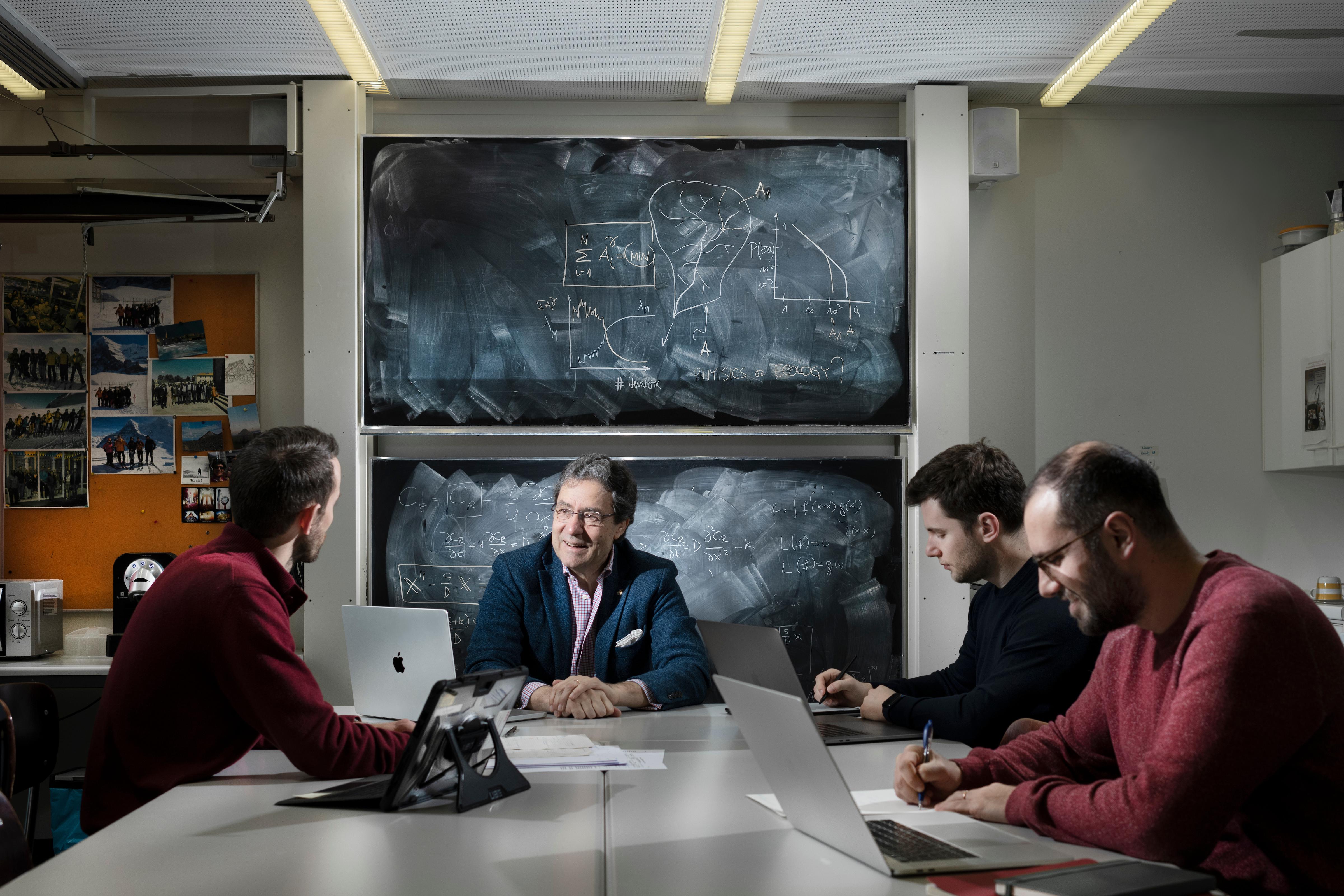Andrea Rinaldo wins the “Nobel Prize in Water”
“This award is a huge honor and a source of great satisfaction,” says Andrea Rinaldo, upon hearing he was selected for what’s known as the “Nobel Prize in Water.” He has been the head of EPFL’s Laboratory of Ecohydrology – ENAC Faculty – since 2008 and is also a professor at the University of Padua. The work he’s done throughout his career has provided important insight into a recurring mechanism in hydrological and ecological processes in drainage basins. What makes Rinaldo’s approach unique is that he looks not only at surface phenomena but also at the underlying soil composition in areas where water streams converge.
A universal system of “ecological corridors”
“Living organisms have always propagated along flowing surface streams,” he says. “That’s true for microorganisms and wild animals just as much as for human beings. And if you look at rivers around the world, regardless of the surrounding landscape, they tend to adopt pretty much the same dendritic structure. That creates ‘ecological corridors’ that guide the movements of living organisms.” Based on this observation, scientists have developed mathematical models for predicting the propagation of invasive species and pathogens across a given region – for example, in event of a cholera epidemic. This marks a major step forward because it lets public health officials take the necessary preventive measures before a disease afflicts too many people.
Torgny Holmgren, the executive director of the Stockholm International Water Institute – the organization that grants the Stockholm Water Prize – notes that “Andrea Rinaldo has significantly advanced our understanding of the complex interactions between the hydrologic cycle, ecological processes, and landscape evolution. His models have provided us with invaluable tools to preserve and protect life through informed policies and practices.”
EPFL President Martin Vetterli says the award “is a testament to the excellent research Andrea is conducting and underscores how important it is for scientists to obtain a thorough understanding of such fundamental biological processes as disease propagation in nature.”

Andrea Rinaldo with (post)doctoral students Paolo Benettin, Cristiano Trevisin and Filippo Miele. © EPFL / Fred Merz | Lundi13
Born in Venice – a “floating city” that undoubtedly shaped his career interest in water – in 1954, Rinaldo has made an outstanding contribution to his field. He’s the author of over 300 journal articles as well as several books published by major scientific publishing houses. He’s also carried out field research in Haiti, Burkina Faso, South Sudan and other countries.
Rinaldo will receive the award from King Carl XVI Gustaf at a ceremony in Stockholm in August. “I’m particularly honored to follow in the footsteps of my friends and colleagues who I worked with on many occasions and who have preceded me in winning this distinguished prize,” says Rinaldo.
